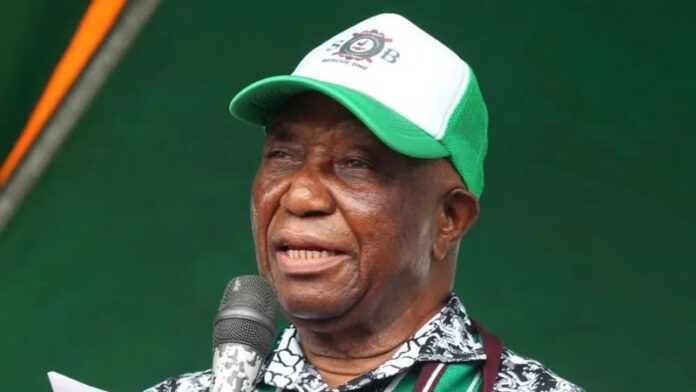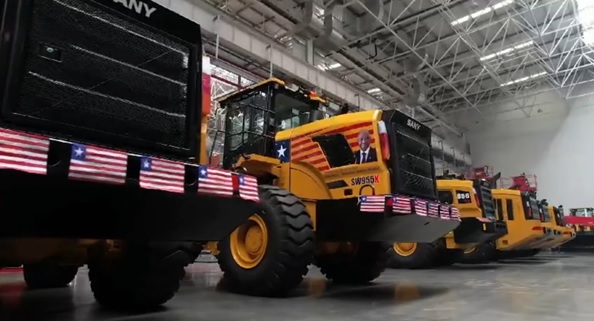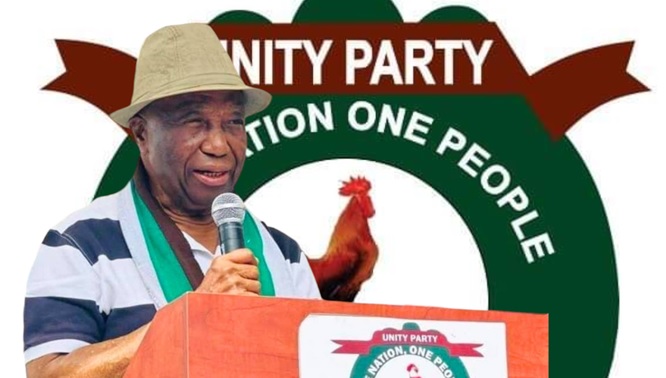MONROVIA, LIBERIA – The Unity Party-led government under President Joseph Nyuma Boakai announced yesterday, May 24, 2024, through the Ministry of State Without Portfolio, that it has secured 285 yellow earth-moving machines for developmental purposes. This announcement, made during the ongoing three-day Cabinet retreat at the Ellen Johnson Sirleaf Ministerial Complex in Congo Town, Monrovia, has raised significant concerns and questions about the procurement process and the source of funding.
The foremost question on everyone’s mind is: where did President Boakai’s administration find over $20 million to purchase these 285 machines? Given Liberia’s current economic challenges, the announcement has sparked widespread skepticism and demands for transparency.
Critics are calling for a detailed explanation of who specifically is funding these purchases. Is it the government of Liberia, an external donor, or a combination of both? If it is indeed a loan, as many suspect, the government owes the public a clear outline of the terms and conditions of this financial arrangement. This includes the interest rates and the repayment schedule that Liberia will have to adhere to.
Transparency in government spending is critical, particularly in a country like Liberia, where public trust in governmental institutions is often tenuous. Without a thorough explanation, suspicions of mismanagement and corruption are likely to grow. The President must provide tangible explanations to address these legitimate concerns.
The method of procurement is another area that requires scrutiny. Was there a competitive bidding process? If so, which companies were involved, and what criteria were used to select the supplier? Transparency International and other watchdog organizations have long emphasized the importance of competitive bidding in reducing the risk of corruption and ensuring value for money.
Furthermore, there are questions about the necessity and strategic planning behind this procurement. While the potential benefits of such equipment for infrastructure and agricultural development are clear, there is a need for a comprehensive plan detailing how these machines will be deployed and maintained. The government must outline the specific projects these machines will be used for, the expected outcomes, and the mechanisms in place to monitor and evaluate their use.
Public reaction has been mixed. While some see the potential for significant developmental progress, others view this procurement with suspicion and concern. The lack of prior consultation with the legislature and the public only adds to the controversy. In a functioning democracy, major spending decisions should involve a degree of public discourse and legislative oversight.
Senator Cllr. Augustine S. Chea of Sinoe County has been vocal about the need for transparency. He noted that there was no mention of this procurement in the national budget, no loan agreement presented to the legislature, and no known grant. “This is a massive expenditure, and the President owes it to the Liberian people to explain where this money is coming from and what strings are attached,” he stated.
In response, some government officials have argued that the machines will address critical infrastructure needs and should be welcomed without excessive scrutiny. This argument, however, does not hold water in the absence of transparency. Infrastructure development is crucial, but it must be pursued in a manner that builds trust and ensures accountability.
Political commentator Vandalark R. Patricks pointed out the irony of lawmakers who have been vocal about transparency in the past now downplaying its importance. He highlighted the $13.2 million recently allocated for “Legislative Projects,” which lacked clear oversight mechanisms. Patricks argued that this inconsistency undermines the credibility of those calling for transparency now.
The broader implications of this procurement cannot be ignored. If managed well, these machines could indeed be a game-changer for Liberia’s development. However, if shrouded in secrecy and mismanagement, it could become another example of missed opportunities and squandered resources.
The government’s next steps will be crucial in determining public perception. President Boakai must address these concerns head-on, providing detailed explanations and ensuring that all aspects of the procurement process are transparent and accountable. Failure to do so could erode public trust and hinder the developmental impact of these machines.
In the coming days, it will be essential for the government to open a dialogue with the public and stakeholders, including the legislature, civil society organizations, and international partners. This dialogue should aim to clarify the funding sources, procurement process, and strategic deployment plans for the earth-moving machines.
Ultimately, the effectiveness of this procurement will depend not just on the machines themselves, but on the governance structures surrounding their use. By embracing transparency and accountability, the Unity Party-led government can turn this potential controversy into a showcase of effective and responsible governance.







